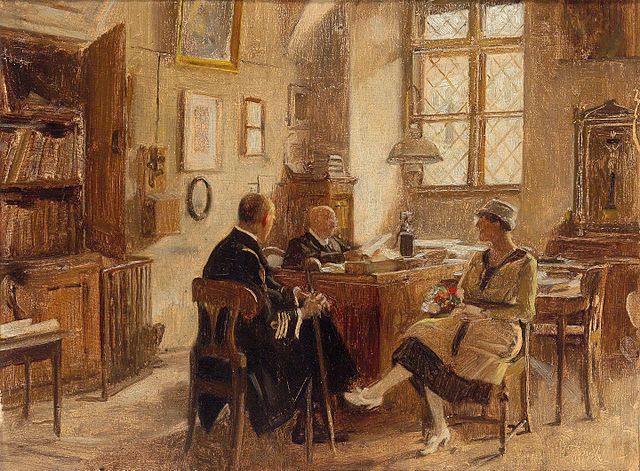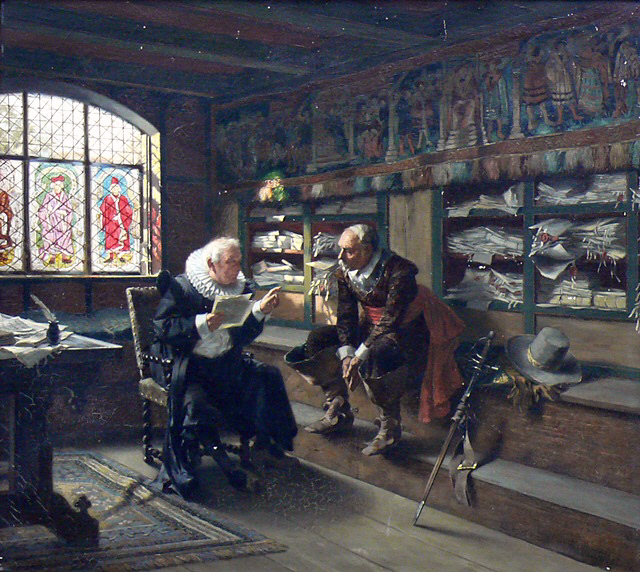
Avoiding spelling mistakes.
Businesses
All Thammasat students and ajarns are familiar with the word business, since it appears in the name of the much-respected Thammasat Business School. Yet when the noun business is made plural as businesses, in Thai English it is sometimes written incorrectly as busineses. How can we prevent this problem from occurring? One way is to look at the word business, which as we know means an occupation, profession, or trade. It can also refer more generally to the professional activity of trade. It should not be confused with the noun busyness, meaning the state of being busy. Rather than using the word busyness, which can lead to confusion even though it is correct, to may be better to refer to workload or activity. To add to the challenge, the word origins of business and busyness are the same, so in this case they do not help us to keep the two words apart as they should be. So instead of the following sentence:
Eight Questions to Determine If Your Busyness Is Actually Accomplishing Anything.
It would probably be clearer to state:
Eight Questions to Determine If Your Workload Is Actually Accomplishing Anything.
or
Eight Questions to Determine If Your Activity Is Actually Accomplishing Anything.
When we deal with the familiar word business, it can seem to have too many letter s’s in it if we add another letter s to make it plural, in businesses. Yet this is correct, and it would be wrong to write busineses. Sometimes we should not rely on what we think looks right or wrong when writing, but try instead to think of similar examples. There are many words ending with the letters esses, so if we see these letters at the end of the word businesses, it should not alarm us. Some of the most common examples follow:
processes
witnesses
addresses
weaknesses
stresses
successes
dresses
illnesses
possesses
excesses
presses
progresses
actresses
confesses
guesses
abscesses
assesses
buttresses
caresses
congresses
fortresses
goddesses
harnesses
impresses
mattresses
mistresses
princesses
recesses
thicknesses
waitresses

These are only some examples, but we can see that one solution for feeling that there might be too many letter s’s in the word businesses might be to remember all the other words that end with the same letters. This will reassure us that what might at first glance seem unusual is in fact a common plural form in English. One approach could be to create and remember a sentence with a few of these examples in it. That way, our brains will associate similarly spelled words. If we become sure of the spelling of one word and link it to others, then we may be confident about a group of words, not just one. Let us start with the following examples, which are made up for their usefulness and not with any meaning intended:
The dresses of the waitresses are admired at congresses.
The weaknesses of the exam results were due to student illnesses.
The actresses were treated like goddesses by their fans.
A further question arises, if we are not happy with the idea of too many letter s’s in a word, when we must write it in a possessive form. That usually means adding an apostrophe and when the word is said aloud, it seems to have yet another letter s, where already we may suspect there are too many such letters. Even native speakers and writers of English may hesitate over whether the following is correct:
The businesses’ profits demonstrate the skills of their CEOs.
If the word businesses may look strange to some writers of Thai English, then it is almost certain that the word businesses’ will look even stranger to others. Yet it is perfectly correct. The subject of apostrophes is a frequent issue for writers of Thai English and will be dealt with in a future entry on the TU Libraries blog. For now, as always, it is good to keep in mind that any uncertainty can usually be resolved easily and quickly by rearranging a sentence. Writers should ask themselves if it absolutely necessary to use an apostrophe, or can the sentence be rewritten to state instead:
The profits of the businesses demonstrate the skills of their CEOs.
If it is possibly to easily avoid the challenge of a question of grammar, then it is sensible to change the sentence, as long as the meaning remains the same. Never be afraid to rewrite a sentence, since the result may be clearer and closer to the meaning that is really intended. In general in Thai English, far too many possessives are used, and this is especially visible on the occasions when they are used in the wrong way. If the researcher has absolute confidence about where and how to add an apostrophe, then it is fine to do so. Yet if not, why create potential problems when they otherwise would not exist? By choosing to follow the easier path, many writers of Thai English can avoid difficulties. It is true that sometimes for the rhythm of a sentence or to avoid awkwardness or repetition, writers use possessives. The sentence
The profits of the businesses demonstrate the skills of their CEOs.
is not offensively repetitive, despite the use of the words of the followed by the words of their. The result still reads better than including a lot of possessives without confidence. In formal writing such as theses and academic research papers, it is always best to be serious in tone. There is a reason that formal documents in English tend to be referred to by their full name, such as
The Declaration of Independence.
This title is not written as Independence’s Declaration because that phrase would not seem as grand, serious, and respectful as to write the name out in full, just as we would avoid abbreviations in names in a dignified and serious context. Keep in mind with the noun business that it also appears in commonly used idioms in English, where it would not be appropriate to use the plural or possessive form. Most of these idioms involving the word business are informal, so they usually will not appear in a thesis or academic research paper. Expressions such as that’s show business, sometimes shortened to that’s show biz, are fine in spoken English, but usually not appropriate for more serious academic research. The meaning of this phrase is to accept the way things are in the world, usually when something fails or does not work out. People exclaim, That’s show business!, to say that this is what is expected from whatever activity is being described. It usually is not a literal reference to the entertainment business.

(All images courtesy of Wikimedia Commons)
